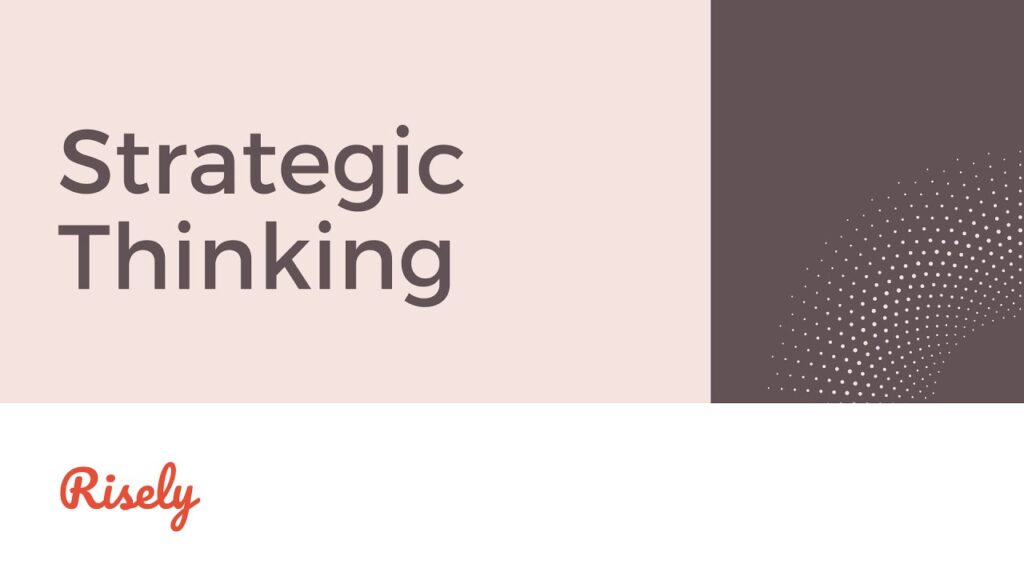Boost Critical Thinking with Strategy Games A How-To Guide

The Importance of Critical Thinking in Modern Society
In a world where information is abundant and ever-changing, the ability to think critically has become crucial. Whether you are navigating a complex work environment or making personal decisions, strong critical thinking skills can mean the difference between success and failure. One engaging avenue to cultivate these skills is through strategy games. These interactive experiences push players to analyze situations, make decisions under pressure, and consider multiple outcomes—all essential components of effective critical thinking.
Integrating strategy games into your daily life can lead to numerous benefits, elevating your cognitive abilities in various ways. Here are some compelling reasons to explore this genre:
- Enhance Analytical Skills: Players are required to assess multiple options and weigh the consequences of their actions, sharpening their ability to analyze complex scenarios.
- Improve Problem-Solving Abilities: Strategy games present a myriad of challenges that demand innovative solutions, teaching players how to think outside the box and remain resourceful.
- Boost Decision-Making: The real-time nature of many strategy games helps players develop quick thinking and adaptability, skills that are invaluable in high-pressure environments.
There is a diverse array of strategy games available, designed explicitly to enhance strategic thinking capabilities. Some popular examples include:
- Chess: Often considered the epitome of strategy games, chess fosters long-term planning and foresight, making each move count in the overall game.
- The Settlers of Catan: This resource management game not only emphasizes strategic thinking but also encourages negotiation skills, as players must interact and collaborate with one another to succeed.
- StarCraft: A premier real-time strategy game that demands tactical prowess and swift decision-making, players must constantly adapt to their opponent’s strategies while managing resources effectively.
Engaging in strategy games can significantly boost cognitive capabilities. These games not only entertain but also provide a platform for personal growth, making them a valuable addition to any learning routine. If you’re eager to enhance your critical thinking skills through strategic gameplay, consider exploring different games, forming a study group with friends, or even participating in online tournaments. Such interactions can further enrich your experience and open new avenues for strategic development. Are you ready to immerse yourself in the captivating world of strategy games and unlock your cognitive potential?
CHECK OUT: Click here to explore more

The Cognitive Benefits of Engaging with Strategy Games
To comprehend how strategy games can effectively enhance critical thinking, it is essential to delve into the specific mechanics that promote this essential cognitive skill set. Unlike many other genres of games, strategy titles present scenarios that challenge players to think several steps ahead. This makes them an invaluable tool for fostering analytical and evaluative thinking.
At their core, strategy games meld elements of tactical decision-making, resource management, and long-term planning. As players navigate various levels or scenarios, they encounter obstacles that require a thorough analysis of every choice they make. Here are a few nuanced ways in which these games hone players’ critical thinking abilities:
- Scenario Analysis: Players must continuously assess current situations and estimate future possibilities based on available information. For example, in games like Starcraft, players analyze their opponents’ strategies while managing their own resources. This continuous evaluation sharpens one’s ability to understand complex systems and predict outcomes, skills that are beneficial in personal and professional arenas alike.
- Strategic Planning: Titles such as Age of Empires or Risk compel players to set both short-term and long-term goals for success. This requirement encourages players to formulate comprehensive plans that address potential setbacks. Players learn that short-term sacrifices may lead to long-term gains, a crucial trait for effective problem-solving in real-life situations.
- Resource Allocation: In games like Civilization, players are tasked with managing finite resources to build prosperous civilizations. The decision of how much to invest in technology versus military might teaches players the importance of prioritization and understanding opportunity costs—essential skills for anyone embarking on projects with limited resources.
Furthermore, many strategy games include competition against others or the game environment, which introduces vital layers of complexity. Players must analyze their opponents’ strategies, anticipate their moves, and adapt accordingly. This interaction fosters social intelligence and can boost collaborative problem-solving when played in groups. For instance, in The Settlers of Catan, players must negotiate with one another to trade resources, enhancing their persuasive communication skills. This element provides a practical setting where players practice and refine interpersonal communication, a skill highly sought after in today’s workforce.
As players engage more with these games, they often witness an elevation in their cognitive flexibility. This ability is critical for adapting concepts and ideas to changing conditions, especially relevant in fast-paced environments found in today’s workplaces, academic settings, or social networks, where quick thinking and innovative solutions are in high demand.
Embracing strategy games within your routine transcends mere entertainment; it is about actively participating in simulations that mirror real-life scenarios requiring sharp critical thinking. By leveraging the unique aspects of these games, players can cultivate a mindset that appreciates analytical rigor, creativity, and the profound impact of strategic choices on outcomes. Therefore, whether assembling armies or developing thriving societies, strategy games serve as powerful platforms for enhancing critical thinking skills that translate well into everyday life.
| Category | Insight |
|---|---|
| Enhanced Problem Solving | Strategy games such as chess or Settlers of Catan present players with complex scenarios that require timely and effective solutions. |
| Cognitive Flexibility | Engaging with different strategies fosters cognitive flexibility, enabling players to adapt quickly and think outside the box. |
Introducing strategy games as tools for enhancing critical thinking processes opens up a world of intellectual stimulation. Players are often required to evaluate various paths and anticipate outcomes, which sharpens their analytical skills. Regular engagement in such activities can lead to enhanced creativity, as participants are compelled to consider multiple possibilities before making decisions.The effects of these games extend beyond immediate gameplay; the strategic thinking developed can be beneficial in real-life scenarios, including academic contexts and professional environments. As individuals gain proficiency in critical reasoning, they become more adept at tackling challenges, improving their overall decision-making capabilities.Furthermore, strategy games create a social environment that enriches learning experiences. Players can discuss strategies, reflect on their actions, and learn from both victories and defeats, creating a feedback loop that deepens understanding. If you’re intrigued by how these games can boost your ability to think critically, exploring different titles in the genre might just be your next step in enhancing cognitive skills.
CHECK OUT: Click here to explore more
Integrating Strategy Games into Daily Life for Enhanced Critical Thinking
Understanding the benefits of strategy games is one thing, but effectively incorporating them into daily routines to maximize critical thinking skills is another. Here are some practical methods that can be employed to seamlessly integrate these games into your lifestyle, ensuring you gain and retain the cognitive advantages they offer.
Start with Diverse Game Choices
To diversify your critical thinking skill set, it is crucial to explore various types of strategy games. From card games to tabletop simulations and engaging digital options like mobile apps, there’s a wealth of choices available. Exploring titles like Chess can sharpen decision-making and strategic foresight, while games such as Catan Universe on digital platforms can elevate analytical discussions among friends or family.
Moreover, engaging with games from different cultural backgrounds, like Go from East Asia or Shogi from Japan, provides unique frameworks for tactical planning and problem-solving. This variety exposes players to new strategies and methodologies, broadening their cognitive horizons and enhancing critical thinking by challenging preconceived notions.
Embrace Multiplayer Formats
Playing strategy games with friends or family introduces an element of unpredictability that can significantly contribute to critical thinking development. When immersed in a multiplayer setting, players must constantly reassess their tactics based on the actions of others, improving adaptability. A game like Team Fortress 2, though primarily a shooter, incorporates strategic elements that require teams to devise coordinated tactics to secure victory. This immediate feedback loop fosters communication skills and encourages players to think on their feet.
Additionally, communities around these games often host discussions or forums, such as on Reddit or dedicated gaming websites. Participating in tactics conversations or strategy reviews helps cultivate a culture of critical feedback and peer evaluation, directly benefiting the player’s analytical thinking.
Setting Personal Challenges and Goals
A constructive way to boost critical thinking is by setting specific, measurable goals while playing strategy games. For instance, challenging oneself to achieve a particular victory condition against increasingly difficult AI opponents can enhance strategic planning and critical evaluation. Online platforms like Steam and **Tabletop Simulator** provide countless opportunities to partner with others seeking similar objectives. Players can track their progress, assess their decision-making processes, and analyze outcomes more effectively.
Utilizing Game Mechanics for Real-Life Applications
To fully leverage the skills gained through strategy gaming, players should strive to translate these mechanics into real-world applications. For example, the resource management aspects prevalent in games like Factorio can be mirrored in personal project management, emphasizing the importance of prioritization and optimization. Additionally, strategic discussions and negotiations within games like Diplomacy can be practiced in negotiation settings at work or in community engagements, allowing players to navigate complex social dynamics effectively.
Thus, by blending gaming experiences with personal growth objectives, players can not only enhance their critical thinking but also apply these refined skills in real-life challenges. In doing so, they are actively shaping their analytical abilities, preparing them for diverse paths in professional and personal contexts.
CHECK OUT: Click here to explore more
Conclusion: Unlocking Potential Through Strategy Games
In our fast-paced world, enhancing critical thinking skills is essential for personal and professional growth. Strategy games present a unique and engaging avenue for sharpening these skills through fun, interactive play. By integrating diverse game choices, embracing multiplayer formats, setting personal challenges, and applying game mechanics to real-life scenarios, individuals can systematically develop their analytical prowess.
Exposure to a variety of games not only broadens thinking styles but also fosters a collaborative environment where players learn from each other’s tactics and strategies. Multiplayer formats introduce an interesting layer of complexity, challenging players to remain adaptable and quickly reassess their approaches. The incorporation of specific goals adds measurable benchmarks to progress, encouraging a sense of achievement while honing critical evaluations.
Ultimately, the key to maximizing the benefits of strategy games lies in intentional use and application. By actively seeking ways to translate gaming experiences into real-world problem-solving, individuals can create a profound impact on their cognitive abilities. Whether through improved negotiation skills inspired by Diplomacy or enhanced project management techniques nurtured by Factorio, the potential applications are vast and varied.
As you continue on your journey to bolster your critical thinking, remember to keep exploring, questioning, and applying what you learn through these enriching gaming experiences. Stay curious, and let strategy games be a gateway to discovering new insights, strategies, and the power of a well-trained mind.
Related posts:
Advanced Strategy Tips for Experienced Strategy Gamers
How Strategy Games Enhance Mathematical Reasoning Skills
How Strategy Board Games Work Understanding the Mechanics
Create Your Own Group Strategy Games A Step-by-Step Guide
Boost Cognitive Skills Benefits of Strategy Games Explained
Winning Strategies for Real-Time Strategy Games Essential Tips

Beatriz Johnson is a seasoned puzzle enthusiast and writer with a passion for unraveling the complexities of mind games and brain teasers. With over a decade of experience in the world of puzzles, she specializes in topics like logic games, riddles, and strategic challenges. Through her work, Beatriz empowers readers to sharpen their problem-solving skills, think creatively, and stay engaged in the ever-evolving landscape of mind games and puzzles.